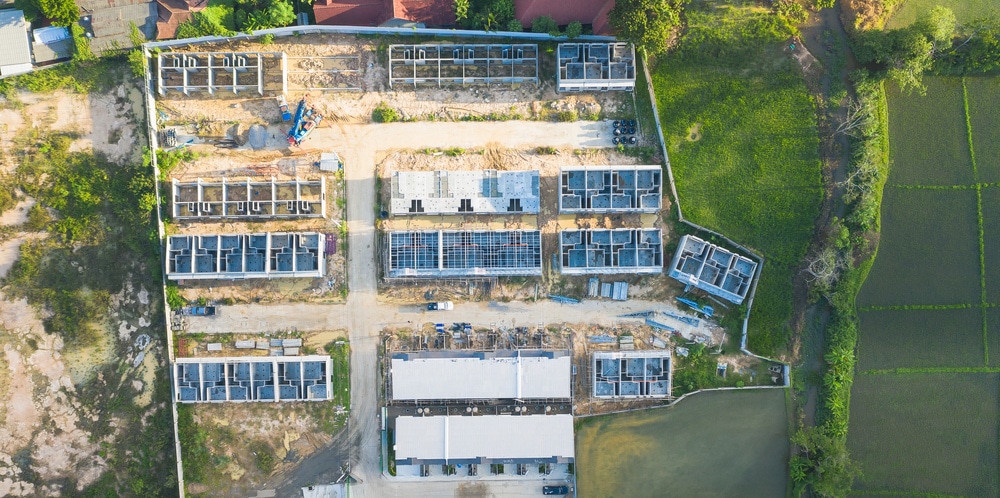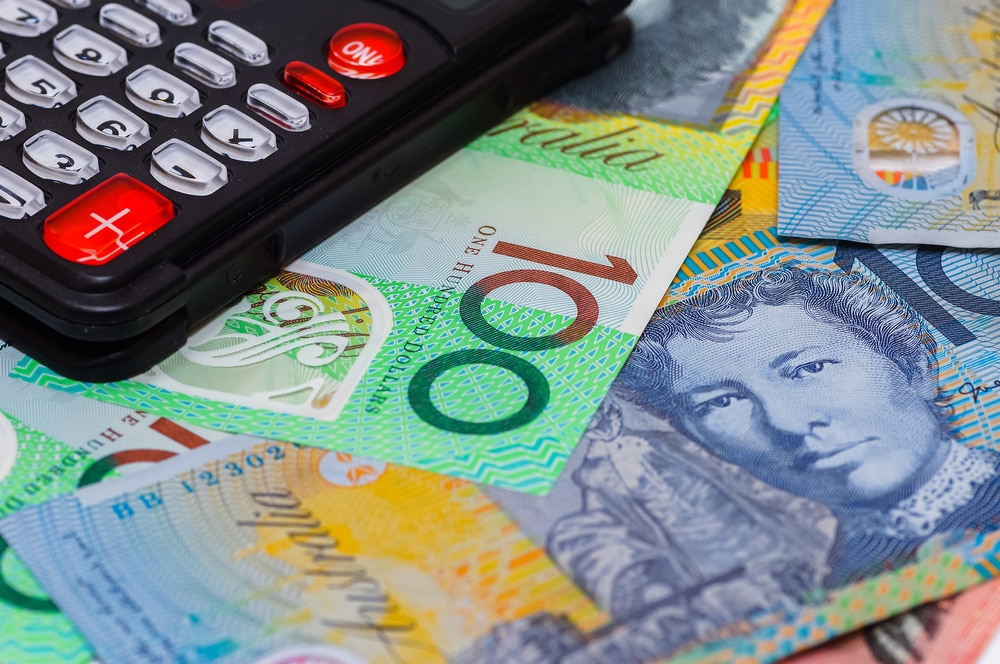
Buying an Investment Property Before a First Home in Australia?
w Hey you! Are you sitting there right now wanting to tap into the booming real estate market growth but wondering “should I buy an investment property or home first?”, then you need to read on.
Owning property has always been part of the great Australian dream. A lot of people want a place to call their own, with stone benchtops, the latest appliances and a great entertaining deck out back.
So, when interest rates hit a record low in the last couple of years and it suddenly started to cost the same to own as it does to rent, why wouldn’t you have just bit the bullet and bought your own home?
Well, the thing about those interest rates is that they won’t sit at two to three percent forever, and once they go up to five or six percent, will you still be able to afford that home loan then?
The reality of jumping into a half-a-million-dollar home loan is that if your repayments suddenly jump a further $150 per week you risk ending up on a diet of beans and rice because all your money is going to paying off this home.
This could leave you in a very tricky position, particularly if your dream home is one that isn’t primed for market or location growth. Reasons like this are why people often wonder if they should be buying an investment property before their first home in Australia.
ANOTHER WAY TO CRACK THE REAL ESTATE MARKET
Of course, coupled with those record low interest rates have been surging house prices in most capital cities.
For many first home buyers who weren’t lucky enough to get into the market earlier through the various government schemes, purchasing property now likely feels very out of reach.
That’s where the idea of rentvesting comes in.
Most people forget the fact that the first property they buy doesn’t HAVE to be one they’re going to live in, in fact it could be an investment property.
A first home buyer investment property likely sits in a more affordable part of the market. While that may not be somewhere they personally want to live, they can still gain the benefits of owning real estate while renting in the area they love that offers a better lifestyle.
That is the concept of rentvesting.
WHY YOUR FIRST PURCHASE SHOULD BE AN INVESTMENT PROPERTY
Whether you buy an investment property or home first, you need to centre your decisions around your long-term financial goals.
Buying your own home first might seem beneficial so you can have full ownership over the space and make it your own, but it actually has no benefit to your existing cash flow.
See, owning a home you live in is actually considered bad debt, unlike an investment property that is good debt.
Having an investment property is considered good debt because it’s an asset that creates income (rent), gives you tax deductions and increases in value more than its costs.
Your owner-occupier home is bad debt because it creates no income, you get no tax deductions and unless you are living in a property hot spot, your capital growth could be next to nothing. Bad debt can really cripple you as an investor because it drains the financial life out of you on paper – as well as sucking actual money out of your pocket.
No matter if you buy an investment property or a home first, if you have bad debt you’re going to need to get rid of it first before a bank or lender will come to the party.
For a more thorough breakdown on good debt I recommend reading this blog: Why debt is your ultimate secret weapon to property investing success.
HOW BUYING AN INVESTMENT PROPERTY DIFFERS FROM BUYING A HOME
Unlike buying a family home, property investing is very much a business – and as such it has to be run that way.
It’s not really an emotional decision
There’s a fine line between making decisions based on emotion and making them based on logic for property investors.
A huge part of being successful in real estate is being able to look at the numbers and make logical decisions based on them. That’s why you’ll often hear people say, ‘buy with your head, not with your heart’.
However, you still need to feel a certain connection to the real estate you buy – after all, if you wouldn’t want to live there for certain reasons, you can bet other people will have those same thoughts too.
The key to separating emotion from logic when it comes to buying really is to remind yourself that you’re buying to suit a target demographic or market, not yourself. So make sure you’re making smart business decisions about where to buy and what to buy.
Here’s a great podcast on how to master the emotions of real estate investing if you want to know more.
It’s harder to find a property that is ACTUALLY desirable
Did you know only 25 percent of real estate is actually desirable? And yet there are still so many investors that only focus on analysing markets and crunching the numbers when it comes to choosing their next property.
But guess what? Renters and home-buyers could not care less about data! What they do care about is the visual experience a home provides, and there are some key traits that help distinguish something desirable from something subpar.
You can dive into that topic here: The psychology of what makes a home desirable.
Understanding the market is a lot more important
Knowing the market is crucial when it comes to purchasing an investment property, particularly if you have certain financial goals you want to achieve.
Unlike a family home, you’ll be looking at things like rental yields, vacancy rates, average returns and demographics of the area before you make a decision.
A BEGINNERS GUIDE TO BUYING AN INVESTMENT PROPERTY
When you’re a beginner in anything it’s always important to take the right steps so that you can get off to a flying start. Here are the first four things you should be doing before you jump into buying.
One: Talk with the experts
Take note, when we talk about experts in real estate investing, we don’t mean people who have just bought a property before like your parents or friends.
Unless they’ve spent years tracking market behaviours and patterns, chances are their buying experience is going to be very different to what you’ll be doing. In fact, their advice may be completely opposite of what an investor would suggest.
You need to put together a team of educated and experienced advisors and mentors to help give you the facts, statistics and strategies that you need to make smart decisions from day one.
This is what we like to call your six-star team, which consists of:
- A property strategist expert (the captain of your team – a coach, mentor, investor and advisor who understands your big picture strategy)
- A finance expert
- An acquisitions expert
- A property management expert
- An accounting expert
- A financial planning expert
Two: Identify the market
Once you’ve decided you’re going to buy an investment property first, resist the temptation to buy the first one you see that’s within your budget!
Doing your due diligence and exercising patience is what separates the best investors from the mediocre ones.
The right property for you may not even be in your city or state. Real estate markets change a lot depending on the location and you want to make sure you’re covering all your bases so you don’t miss out on a great deal.
Look for places where:
- There is a high investment planned for infrastructure improvements or developments
- There is consistently high capital growth
- Gentrification is unfolding
Remember the rule is location, location, location. You can always change the physical look of a property once you buy it, but you can never change where it’s located.
Three: Set some goals
When you ask most people what they really want in life you often get an answer along the lines of ‘more money, less work’. However, very few of those same people think about how they’re going to get there.
Before you can even confront the question of whether you buy an investment property or home first, you need to first think about what your ideal lifestyle really looks like and how much money, to the dollar, you’ll need to get there.
For property investors, this exercise is an important step in being successful – particularly when it comes to your first property. This has the potential to set up the rest of your future nest egg if you can recycle the equity quickly to buy another asset.
Four: Find the right broker
A great broker will make a huge difference to your success as a property investor. Besides ensuring your outgoings are sustainable from the start, they will set you up on the correct loan structure so you can start generating cash flow from your property as quickly as possible.
Remember, as a property investor you aren’t expected to be an expert in all the things that go into it like tax, loans, markets and predictions. But you are expected to seek out the people who are and bring them into your six-star team.
SO SHOULD I BUY AN INVESTMENT PROPERTY OR HOME FIRST?
While there’s no right answer to buying an investment property or home first, if you’re committed to making money off real estate then buying good debt – an investment property – is the way to go!
Not only will it be easier for you to keep acquiring assets because that property will be income-producing, but you’ll see improvements in your cash flow much faster than if you had to also pay off your own home at the same time.
Plus, you can keep renting in an area that offers you the lifestyle you truly dream of, all while building a strong real estate portfolio!
If you want to lift the lid on property investing and take the next steps towards financial freedom, then come along to one of our free masterclasses. Run by our team of real estate coaches and experts, you’ll get valuable and practical advice that will help take you from zero properties to four, five or even six!
Register now for the free property investor webinar.
View our guide on property investment strategy.
Recent Articles
The Property Investment Basics That You Need To Know
Real estate has the potential to become your main vehicle for creating wealth, but only if you take the time to learn some crucial property investment basics to set you up for success as an investor.
Retirement Planning Tips For Property Investors
It’s the Australian dream – the clock ticks 65 (or earlier) and off you sail into the sunset of retirement to live out the rest of your years stress-free. Sadly, for some, this will remain nothing more than a dream with the drastic cost of living rising and no plan to cover the shortfall.
10 Ways To Save For A House Deposit [For Investors Or First Timers]
Saving for a house deposit to get onto the property investment ladder is tough. Especially with the cost of living drastically going up. After bills, rent/mortgage, groceries, petrol, insurance… there isn’t a whole lot left for saving. But that doesn’t mean it’s impossible! By adopting these 10 ways to save for a house deposit you’ll be ten steps closer to building out your portfolio and creating future wealth.
Learn Property Investment In 2022 – Where To Start!
With a commitment to learn property investment and all its ins and outs you’ll be able to grow a booming property portfolio, enjoy passive income streams and eventually create financial security for retirement. Here’s a list of how you can get started…
5 Questions To Ask Before Investing In A House
Some may stumble across a business opportunity, or perhaps investing in shares, but our go-to vehicle is real estate. Real estate is a long game that has the potential to provide generational legacy wealth, if done correctly. To set yourself apart from the 99% of investors who fail, you need to ask these 5 questions before investing in a house.
How To Protect Your Real Estate Assets For Long-Lasting Wealth
Protecting your real estate assets is perhaps more important than building them. Obviously we always hope for the best, but there are many things that can go wrong and when they do, you and your assets are at risk. Incorporating prevention measures into your investment strategy could be the difference between you continuing to build out your wealth or losing everything you own.
How Investors Can Use Equity Lock To Grow Their Portfolio
How to make money from subdividing land largely depends on how you choose to do it. One thing for sure though is that when done right, it can catapult your portfolio significantly in a very short time!
How To Make Money From Subdividing Land?
As an investor, there are many different strategies that you can employ to generate wealth, and a strategy that is great for instant equity gains is subdivision. But, while it sounds like an exciting project to take on, how do you actually make money from subdividing land?
The Money Management Skills You Need For Real Estate In 2022
Real estate is the perfect asset structure for wealth building, but it has to be done right – and that means having solid money management skills to back you as you make these major financial decisions. Some of these skills may seem obvious – like having a budget – but you’d be surprised how many young investors didn’t get to build this foundation of knowledge through their school or home life.






![10 Ways To Save For A House Deposit [For Investors Or First Timers]](https://positiverealestate.com.au/wp-content/uploads/2022/09/saving-for-a-deposit.jpeg)





